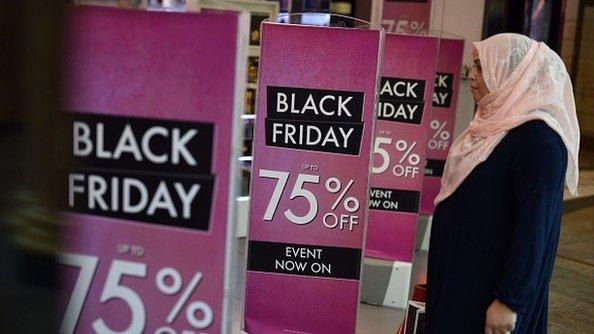Retail sales rise on Black Friday discount boost
- Published
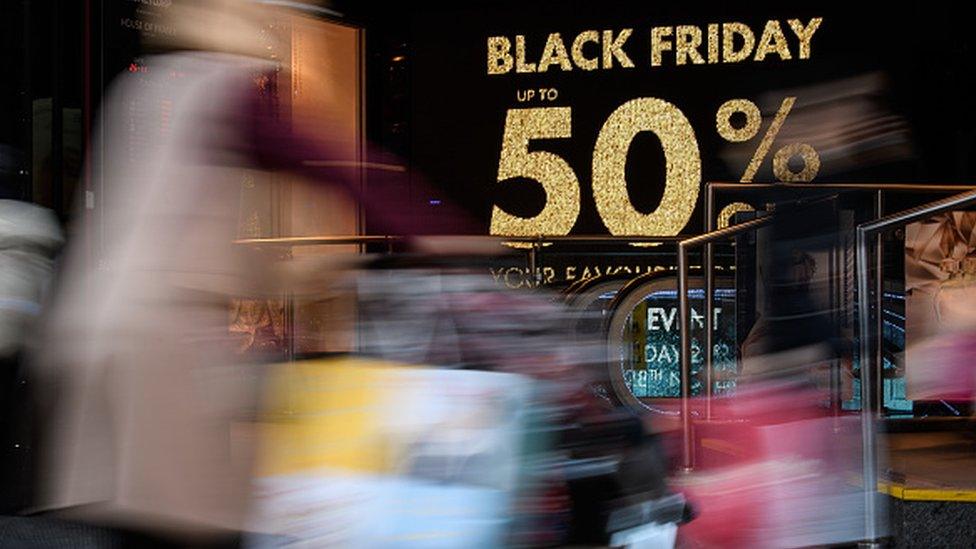
Retail sales volumes jumped by 5.9% in November compared with the same month last year as shoppers took advantage of Black Friday discounts.
But higher fuel costs meant the rise was not as strong as in October, when annual retail sales growth hit a 14-year high of 7.2%.
Monthly sales in November rose 0.2%, compared to October's increase of 1.8%.
The data showed, external annual fuel sales hit a two-year low last month as fuel prices rose at the fastest rate since 2011.
Figures released earlier this week revealed that rising fuel prices had contributed to a rise in the inflation rate in November, which climbed to a two-year high of 1.2%.
Paul Sirani, chief market analyst at Xtrade, said: "The retail sector has been in fine fettle since Brexit and, although [Thursday's] figures are not as strong as October's, there is plenty of reason to believe that shoppers will continue to spend well over the festive period."
But he added: "The forecast for rising inflation next year is a big worry for consumers. Prices look set to soar in 2017 and households could be put under huge strain."
Kate Davies, senior statistician at the Office for National Statistics (ONS), which compiled the retail sales figures, said: "Retailers saw continued growth in the run up to Christmas.
"Department stores and household goods stores had a particularly strong month, especially in sales of electronic goods, boosted by 'Black Friday' deals."
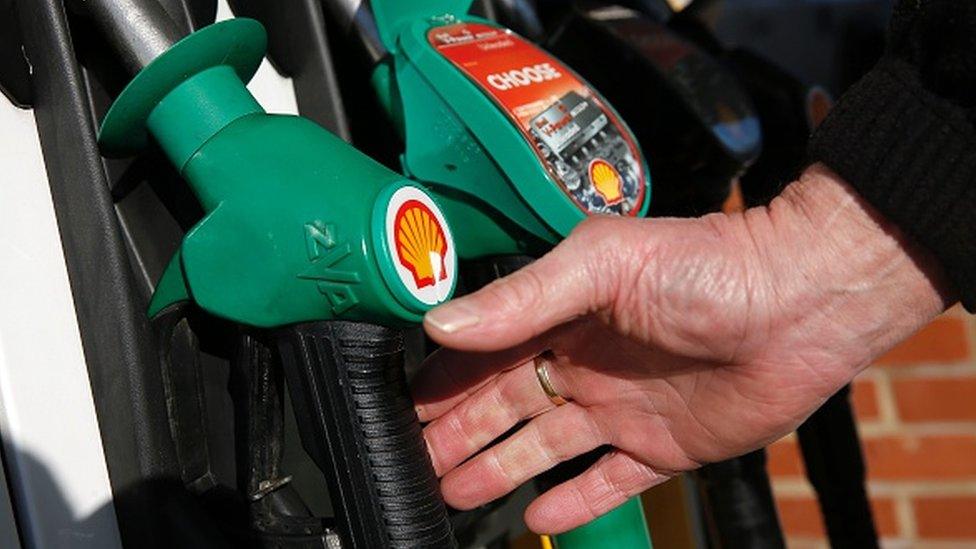
Chris Williamson, chief business economist at IHS Markit, said November's data indicated that fourth quarter retail sales were running 2.1% ahead of the previous three months.
However, he warned that falling construction output and industrial production could prevent GDP reaching the 0.5% growth recorded in the third quarter of the year.
He also noted that consumer spending is likely to come under pressure.
"Evidence suggests that spending is currently being driven at least in part by historically high levels of employment and rising wages.
"However, this looks set to change next year, when the combination of higher inflation and weak pay growth are likely to curb consumer spending."
- Published14 December 2016
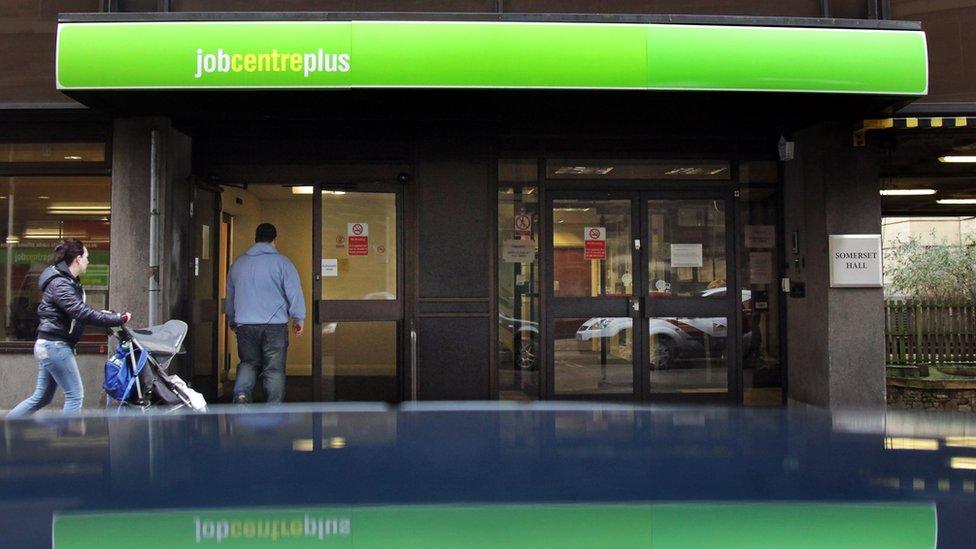
- Published13 December 2016
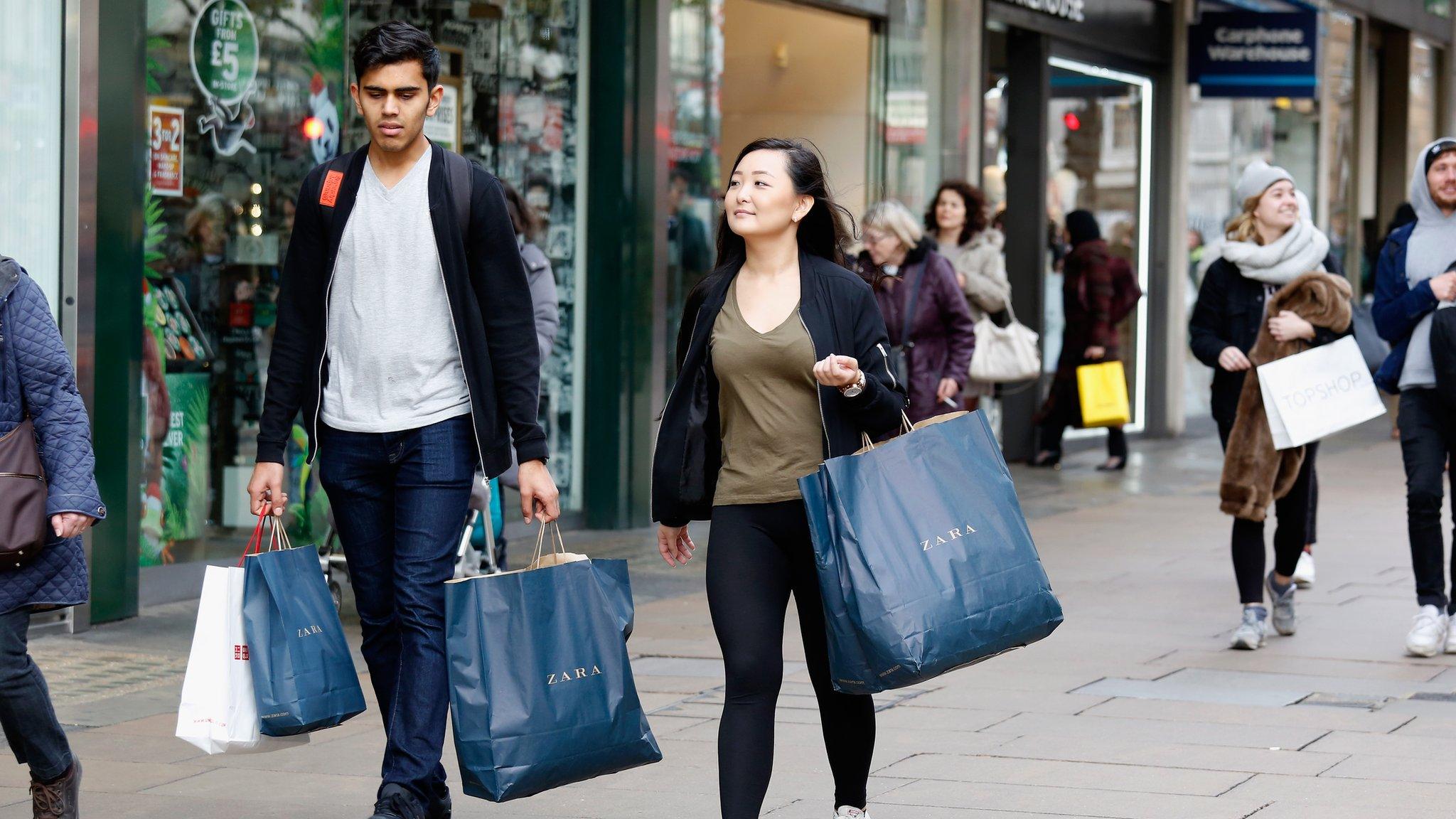
- Published26 November 2016
